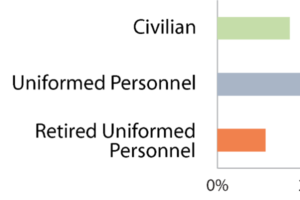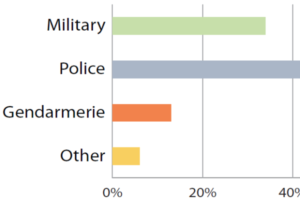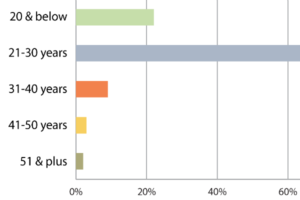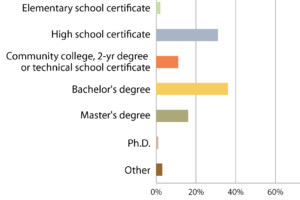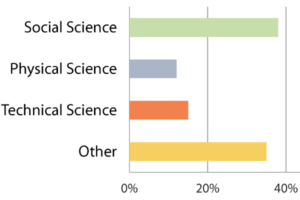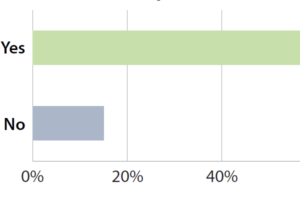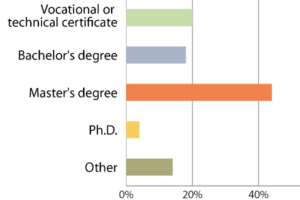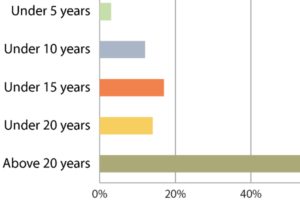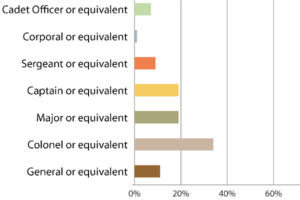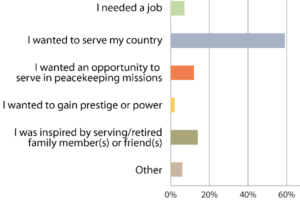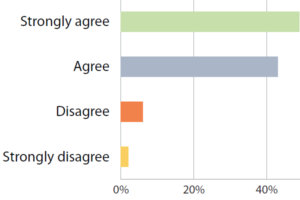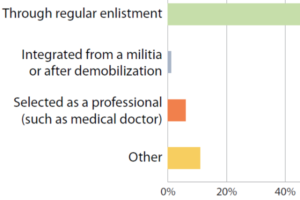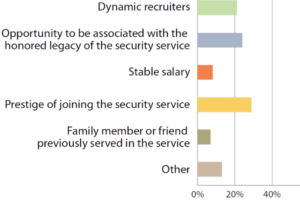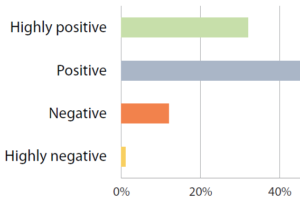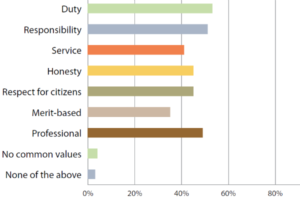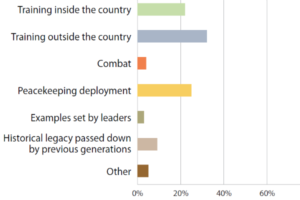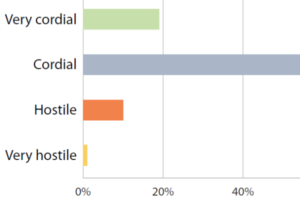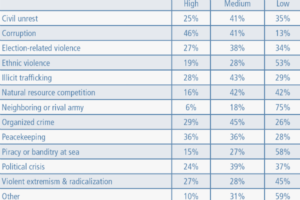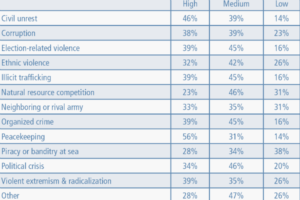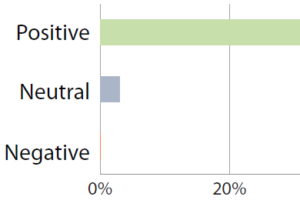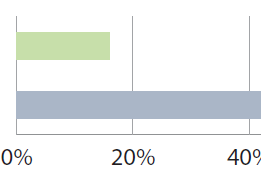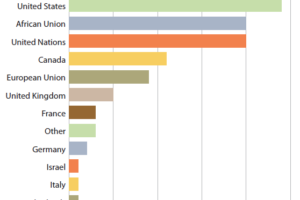By
Kwesi Aning and Joseph Siegle
April 29, 2019
Download Full Report
English
Table of Contents
A total of 742 African security sector professionals from 37 countries responded to the quantitative survey. The results for each question are included below. A more detailed examination of the results follows in the Analysis section of this report.
Question 1. Are you a civilian or uniformed member of the security sector?
Question 2. To which security organization do you belong?
Question 3. At what age did you join the service?
Question 4. What was your highest educational qualification at the time you entered the service?
Question 5. What educational background did you enter the service with?
Question 6. Have you had any opportunities to further upgrade your educational qualifications since you joined the service?
Question 7. If yes, what further qualifications have you obtained?
Question 8. How long have you served in the security service?
Question 9. What is your current rank?
Question 10. Select the answer below that best explains your reason for joining the security service.
Question 11. My expectations for joining the service are being (were) met.
Question 12. How did you join the security service?
.
.
Question 13. What element of the recruitment process did you find the most compelling?
Question 14. What do you think is the public’s perception of your service?
Question 15. What are some common values that describe the attitudes of your service?
Question 16. What experiences have been most influential in shaping the identity of your service?
Question 17. How would you describe the relationship between the security professionals and civilians in your country?
Question 18. What are the security challenges you are likely to face?
.
.
Question 19. How prepared are you to meet these security challenges?
Question 20. What is your view of international training?
Question 21. Do you prefer training partnerships with one or two primary countries or a wide diversity of partners?
Question 22. Preferred Partner
Countries
Question 23. Nationalities of Respondents
The survey recorded a high response rate from the West African region. Of the total survey respondents, 71 percent were from West Africa, 15 percent were from Southern African countries, 8 percent were from Eastern Africa, and 6 percent were from Central Africa. Senegal had the highest number of respondents with 14 percent of the total, followed by Mali (with 13 percent) and Nigeria (with 10 percent).
Respondents were born between 1947 and 1992 with a median of 1974. This result represents considerable age diversity among the respondents, providing a solid base from which to draw out comparative observations between generations. For purposes of analysis, the respondents were grouped into four evenly-sized age quartiles:
- Age Cohort #1: ages 54–70
- Age Cohort #2: ages 46–53
- Age Cohort #3: ages 39–45
- Age Cohort #4: ages 25–38


